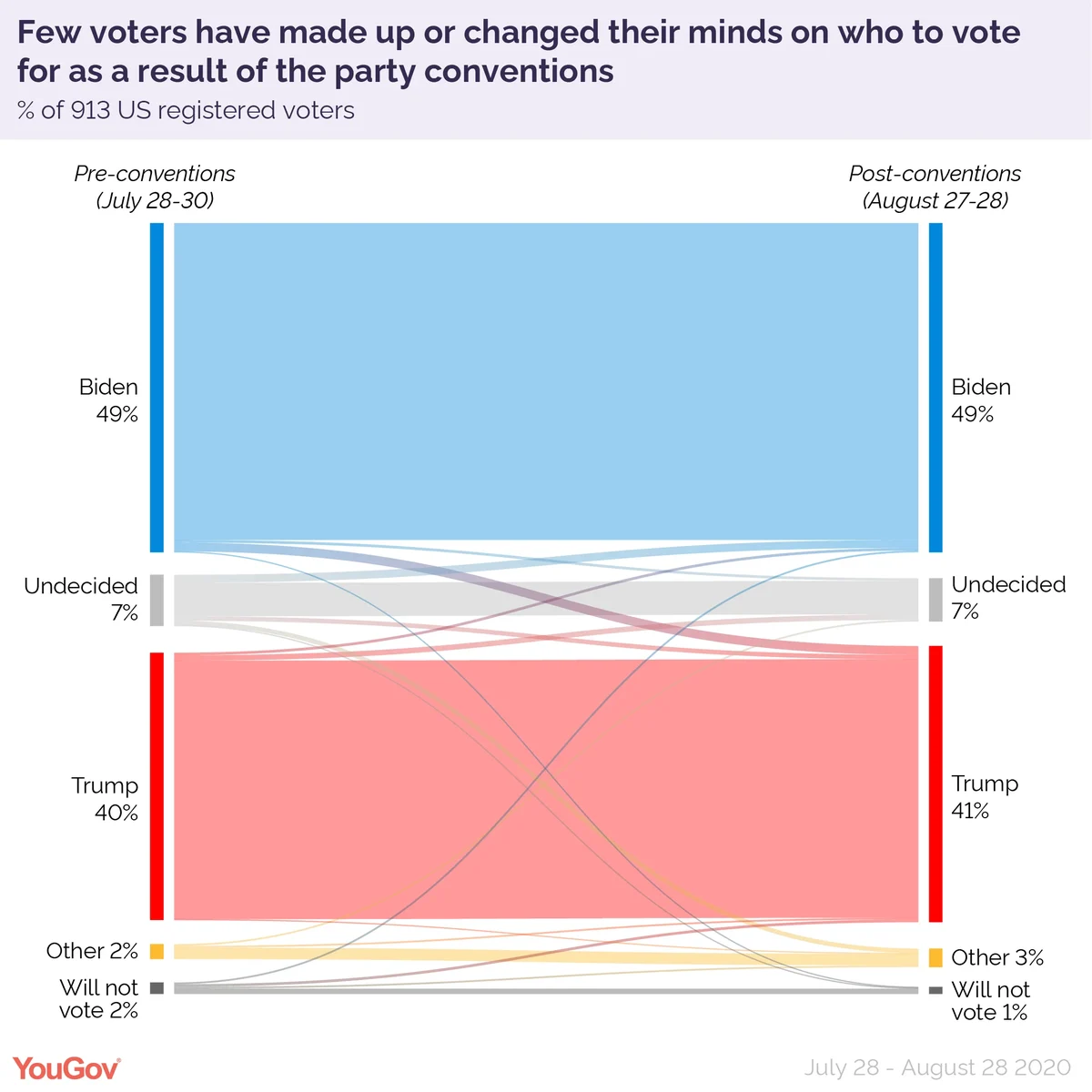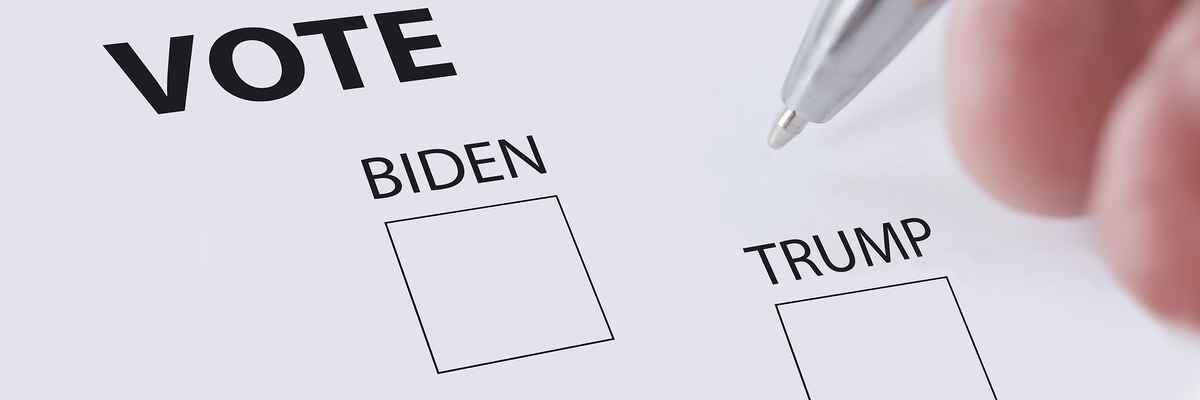The last week may leave some poll watchers confused about whether the party conventions changed the race for president.
Some surveys, including the latest Economist/YouGov poll, show the conventions changed little about the presidential race. Others, including the latest Yahoo News/YouGov poll, showed a slight narrowing of Joe Biden’s lead over President Donald Trump following the Republican convention.
What gives?
The short version is that there is truth in both findings. In particular, data from the Yahoo News/YouGov poll suggest that whatever bump or bounce Trump received was small and dependent largely on conflicted voters less engaged in politics. That makes any bump potentially fleeting.
YouGov’s most recent Yahoo News poll, conducted just after the Republican convention, can help confirm opinion shifts because it involves recontacting and reinterviewing a sample of Americans first surveyed in late July. This type of survey gives us more confidence about observed differences in topline results, because we can check whether individual respondents changed their answers.
In this case, within 24 hours of the conclusion of the Republian convention, YouGov was able to interview 1,001 of 1,506 adults. Biden’s lead over Trump among registered voters, which had been nine points at the end of July (49% to 40), narrowed to six (47% to 41%). Rounding slightly exaggerated the change; the actual decrease in Biden’s lead was 2.5 percentage points. Yahoo News reported those results on August 29, but YouGov continued to run the survey over the weekend.
The extra time in the field brought in another 236 adult respondents by Tuesday, raising the recontact rate to 82 percent. Those additional surveys also slightly widened Biden’s lead back to eight points (48% to 40%). On this more complete survey, the net decrease in Biden’s margin was slightly smaller (1.4%) than it had been in the first wave of interviews (2.5%).
Comparing individual answers from respondents shows that (93%) of all registered voters gave the same answer on the vote preference question before and after the conventions. The remaining 6 percent moved to or from Trump or Biden between the surveys.
It is important to remember that this is a very small subgroup consisting of voters who shifted in different directions, so we cannot conclusively untangle the reasons why some moved one way and some moved the other. In other words, the convention period changed very few minds, and even considering the additional 5 percent who were consistently undecided, there are very few voters left to persuade.

The kinds of voters who shifted their vote preference are perhaps even more important: they are much less partisan, attentive to politics and invested in the outcome. Just 22 percent said they pay a lot of attention to politics compared to 59 percent of consistent Trump and Biden supporters. Just 43 percent of shifters say they care a lot about who wins, compared to 88 percent who stuck with Biden or Trump (while just 50 respondents, unweighted, shifted to or from Trump or Biden, all of the differences cited here, as well as those in the table below, were large enough to be statistically significant).
And perhaps counterintuitively, just 38 percent of the switchers said they watched any of either the Democratic or Republican conventions live, compared to roughly two-thirds (65%) of those who were consistent Trump or Biden supporters.
Another important characteristic of the switchers is that, to the extent they follow politics, their attitudes are often conflicted: As a whole, while not strongly partisan, they lean roughly two-to-one Democratic on party identification, yet better than two thirds have an unfavorable impression of Biden (opinions that showed little between the conventions). They are generally divided on Trump, with his job rating showing improvement between the conventions.
The larger point is that they were more open to change largely because of their relative inattention to politics, combined with opinions about Trump, Biden and the political parties that are sometimes in conflict. Thus, the answers such voters give to poll questions can vary from survey to survey and week to week.
So it would not be surprising to see a very slight shift during a political convention – where one party tends to dominate news coverage to an unusual degree – vanish entirely into the margin of error just a few days later.
Related: The RNC and DNC changed little about the presidential race
Methodology: The survey was conducted by YouGov using a nationally representative sample of 1,001 U.S. adult residents interviewed online August 27 - September 21, 2020. The respondents all participated in a prior Yahoo News survey conducted July 28-30, 2020 and were contacted to participate. Of the 1,506 adults in the July 28-30, 2020 survey, 1,227 responded to this survey – a recontact rate of 81.5%. Respondents were re-interviewed from the previous nationally representative survey. The sample was weighted to gender, age, race, education, geographic region, news interest, 2016 Presidential vote and registration status, and baseline vote intention of the first wave. The margin of error is ±3.7 percent (and ± 4.1 percent for the sample of registered voters).
Image: Getty











